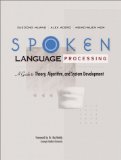Difference Between Written and Spoken language
There are many differences that can be noted between written and spoken language. Sometimes speaking in a way that things would normally be written, or writing in a way that people speak can lead to language sounding strange, unnatural or inappropriate.
When speaking people tend to include contractions such as I’ll or don’t that tend not to be appropriate in formal written language. There are also many slang words that are popped into spoken language, that depending on the context are not strictly correct in written language. There are other language conventions that are constantly broken in spoken language, which are more strictly adhered to in written language. Examples of this include beginning sentences with but or because and ending sentences with prepositions.
Some grammar tends to be used almost exclusively and not in speech. An example of this would be past perfect grammar. This is typically used to narrate something and therefore is rarely used in spoken English. For example: ‘He had been thinking of taking a summer house in Tuscany for some years before he met Valeria.’ It is possible to use this grammar construction in spoken English, but it is rarely done so.
Since spoken language is much more dynamic and immediate, there is much less precision in it. You will often hear native English speakers make grammar slips that they would never make in written language. Mistakes such as ‘How much apples are left?’ occur when speakers are forming sentences and changing ideas rapidly.
Since written texts can be revised and thought out more thoroughly than spoken language, they can present communicative ideas in a precise, well-ordered and presented in a more sophisticated way engaging higher level vocabulary and ideas than is often presented in spoken language.
Conversely spoken language can sometimes be more communicative as it allows for clarification and additional information in a way that a stand alone written document does not. Often it is the case that the tone, intention or meaning of a written piece of language may be unclear. In spoken language you communicate with more than the words you use: tone and body language add a significant amount of information to the language receiver. Clear examples of this relate to usage of email, which is often written in conversational language, but without the extra language cues that accompany spoken language the writer’s intention can be misinterpreted.
Summary
1. Spoken language is generally less formal than written language.
2. Spoken language tends to be less precise than written language.
3. Written language is often more articulate and sophisticated than spoken language.
4. Spoken language can be more communicative than written language due to extra cues such as body language and tone.
5. Spoken language us generally less formal than written language.
- Difference Between Governor and Senator - November 14, 2009
- Difference Between Immigration and Migration - November 14, 2009
- Difference Between Who and Whom - November 13, 2009


Very useful.
your Website is very good